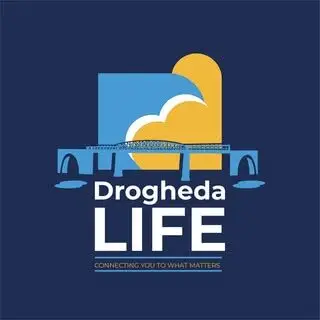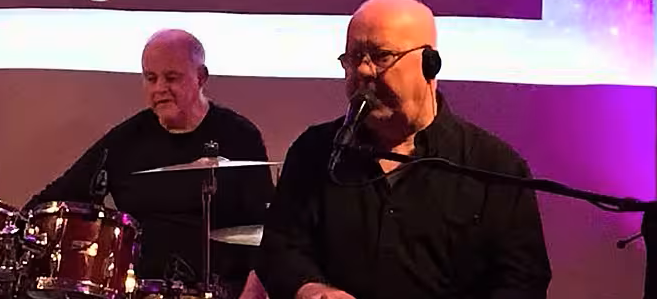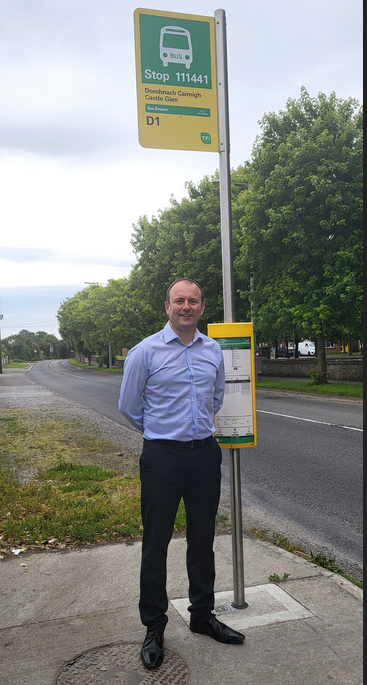By Paul Murphy
Historian Sean Collins told a seminar on the Civil War last weekend that, having studied the revolutionary period in Ireland for over 30 years, he had come to the conclusion that Drogheda had never been a hotbed of activity during that period.
The seminar entitled “Drogheda Remembers – the Irish Civil War 1922-23” was organised by the Drogheda Civic Trust and held at St Peter’s Church of Ireland Hall and supported by the Decade of Centenaries Programme and Louth County Council and attended by Mayor of Drogheda Cllr. Michelle Smith and Cllr. Pio Smith.
Looking at the road to the civil war and the divided loyalties among the townspeople of Drogheda at the time, Collins said that the late Larry Walsh, a former Mayor of the town, had been sworn into the IRB in 1907, presumably by James Weldon who ran a tobacconist shop in Shop Street and, according to RIC records, was under observation for over 30 years as they believed he was at the centre of IRB activity in the town even though they could never prove anything against him.
The Irish Volunteers were formed in the town in May 1914, but they were soon infiltrated by Walsh and other IRB colleagues. He drew attention to another famous Drogheda man, William Kenny, who in 1915 was awarded the Victoria Cross at the Battle of Mons in Belgium.
Kenny’s mother was from Drogheda, his father from Baltinglass and William Kenny was born in Natal Province in South Africa where his father was a serving soldier.
“The Redmondite-controlled Drogheda Corporation saw their opportunity to show their loyalty to the crown and immediately adopted Kenny and on Saint Patrick’s Day 1915 conferred on him the VC and the Freedom of the Borough with much fanfare and celebration.
The Drogheda people were very familiar with the new armies that were emerging in Ireland in that period. The UVF, or Carson’s Volunteers as the local press referred to them, attempted several times to bring rifles through Drogheda port but they were intercepted by the RIC. A branch of the UVF, the only one in the South, was formed in Collon.
Sean Collins said that in 1916 a group of local volunteers under the command of Philip Monaghan gathered at Mell but a countermanding order from Eoin O’Neill, delivered by Joe Connolly, cancelled their endeavour and years later, most of them who answered questions as to what they had done in the Rising, said they had gone to Fairyhouse Races!
One Drogheda family, the Thorntons, returned from Liverpool to take part in the Rising. Frank, Hugh, Patrick and their sister Nora were all active in the capital city during the Rising. One of only two photographs taken inside the GPO shows Hugh Thornton standing in front. (see above).

At its first meeting after the Rising, the members of Drogheda Corporation passed the following resolution:
“Resolved that this Corporation, the majority of whose members have been identified since the days of O’Connell with the constitutional movement for the obtaining of self-government for Ireland, desire to place on record its condemnation of the recent futile and deplorable occurrences in Dublin”.
In a round-up, young Drogheda men, “many of them innocent”, were interned in British prisons and some in Frongoch internment camp in Wales. The men in Frongoch staged an All-Ireland football final between from Louth and Kerry. Tom Burke, a Drogheda man, captained the Louth team. “And Kerry, sadly to say, were always victorious!”
Frank Thornton returned to Drogheda but he was soon incarcerated under the Defence of the Realm Act (DORA) for organising men into drilling and marching on the streets of Drogheda where upwards of 300 men participated.
Sean quoted from a letter written by a then 12-year-old Drogheda boy, Eoin Carolan, who had written a story based on reminiscences of his grandfather who told him that in 1922, when the Civil War was raging and the IRA had taken over Millmount Barracks:
“Free State forces had tried to starve them out but this failed miserably due to the efforts of baker John Stafford who smuggled bread in. The Free State forces got a 19-pounder gun from Britain. The people of Drogheda just assumed they were bluffing but how wrong they were”.
Eoin wrote “my grandfather who was only 10 was getting the day’s dinner downtown . A rumour was circulating that Free State forces were going to begin shelling Millmount. In a simple people the majority scoffed at the idea .
“Then along came a low whistle and a loud thud. The shelling had begun. Panic erupted. People ran hither and thither. My grandfather ran home without the shopping and hid under the bed. Shopping was the last thing on his mind. For weeks on end the gun, which was now in the Abbey Shopping car park pounded Millmount, knocking lumps out of it.
After every shell the IRA defiantly fired a rifle shot just to let the Free Staters know that they were still alive and kicking. Finally, the IRA left their garrison commonly known as the cup and saucer”. Eoin Carolan is now Professor at University College Dublin where he is a founding director of the Centre for Constitutional Studies.





